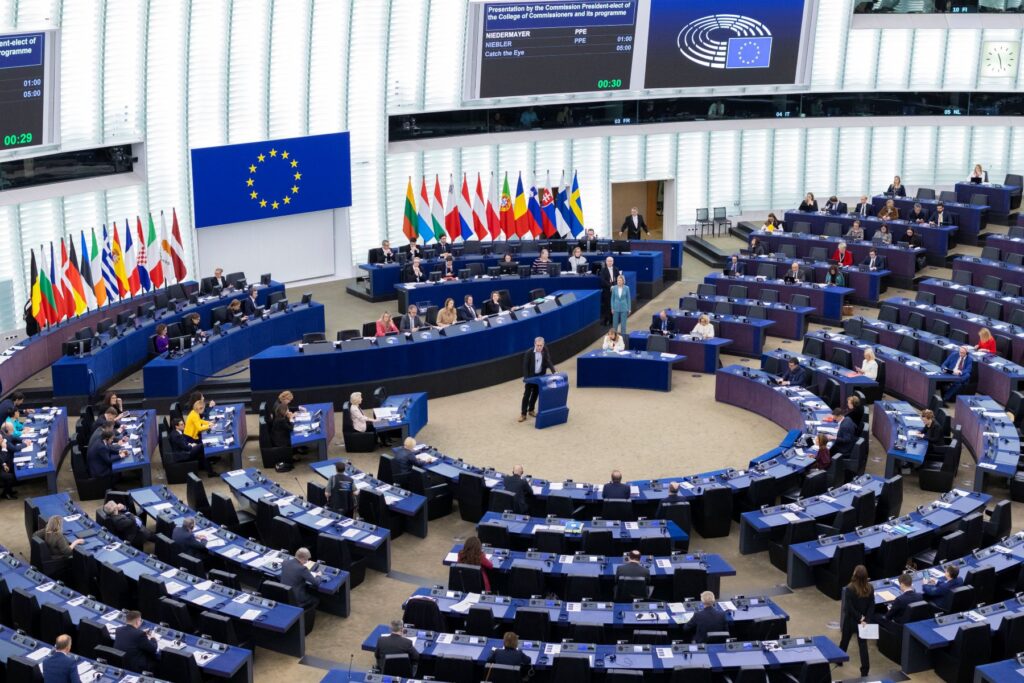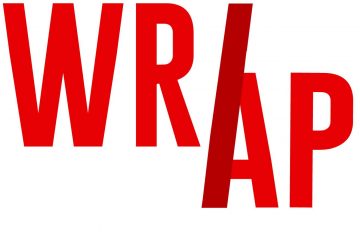How the EU Spreads Its Values Through Cinema
“Cinemas serve as cultural hubs, reflecting European values while connecting with local communities. Compared to literature and theatre, cinema is more accessible and democratic, offering an affordable cultural experience to a broad audience.”
Sonia Ragone, International Union of Cinemas
For decades, cinema has been used as a tool of soft power. It has become an important diplomatic way for global powers to spread their values. How does the European Union portray these values through the world of cinema? And when do these values get looked upon as propaganda?

European flags in Strasbourg
Propaganda vs soft power?
Before being able to assess how the EU uses soft power to portray its values through cinema, there needs to be an understanding of what it is, and what the differences are with propaganda. Soft power is the ability to co-opt rather than coerce. It is trying to shape the preferences of others through appeal and attraction. Propaganda is the systematic effort often used by autocratic regimes to manipulate other people’s beliefs, attitudes or actions.
Click here to listen to the full interview.
Because soft power and propaganda are related to each other, it is not always easy to distinguish one from the other. For example, cultural programmes (which are a form of soft power) might be perceived as propaganda if they appear overly manipulative. “Soft power is about sharing ideas. Let’s take democracy, for example. In soft power, we try to promote democracy in a way that allows for different perspectives. The issue is when the idea of promoting democracy collapses into something more directive, it risks blurring into propaganda”, says Irit Neithardt, distributor and scholar in the field of cinema and the Arab world. Philippe Meers, professor in film studies at the University of Antwerp, says that “the moment a film director twists the reality, it can be seen as propaganda.”
Though the two concepts are very much related to each other, they aren’t exactly the same. The biggest difference is that propaganda historically speaking always has a negative connotation, whereas soft power is often looked at in a more positive way.
Don’t know much about history?
Cinema has long served as a powerful tool of soft power. It is used to spread values, shape perceptions, and foster cultural understanding. Since the early days of cinema, films have done more than just entertain.
Soft power throughout the years: Romania
Romania stands out as an example for understanding the use of soft power in Europe. Ion Indolean, a filmmaker and professor at the Babeș-Bolyai University in Romania, explains the influence of soft power in his own country throughout the years.
During World War 1, Romanian cinema was a tool of state propaganda. “Movies were made with ministry funds, so with state money”, Indolean explains. “Romania also made movies to show heroic acts in Romania’s history. That’s a form of propaganda. In those times, almost every movie was propaganda rather than soft power.”
By the time the Cold War came around, Western culture began to seep into Romanian society through cinema and media. “The generation of my parents, who were born in the 60s, listened to famous bands from the West and watched Western movies”, Indolean says. “These movies influenced the Romanian people by showing that life in Western Europe was freer and richer than in the East.”
“Today, the propaganda is much more nuanced. It’s not like a couple of institutions decide what movies should be made. Instead of direct control, influence now comes through cultural trends and market demands, which shapes movie narratives in less obvious ways”, concludes Indolean.
Screening Europe in the world?

European Parliament in Strasbourg
Kathleen van Brempt, MEP for the S&D shares her thoughts on the role of European cinema in the world.
Funding of soft power through cinema
The EU funds different programmes which they use to promote their values within its borders and beyond. The Creative Europe MEDIA programmes support the audiovisual sector. These programmes fund European films, series, streaming platforms, videogames and other kinds of audiovisual projects. The current programme runs from 2021 to 2027, and it received 2.6 billion euros of funding. Jeroen Verhaeghe heads the MEDIA Desk in Flanders and explains what they do: “We help candidates for funding with all the administrative work, from reports to scripts. Afterwards this goes to a centralized system where it will be evaluated by members of the EU. The best projects will receive some funding.”
LUX AWARD
One of these programmes is the LUX Audience award that was launched in 2007. It yearly rewards a film that tackles pressing societal issues. Every year five films make the short list and both the public and MEPs can vote for these films. The film with the highest score wins the award. “What we do with the LUX Award is we bring very critical films, and we push critical thinking”, says LUX Award Observer Maria Silvia Gatta.
The EU also supports various film festivals, providing platforms for European filmmakers to connect with audiences and industry leaders while celebrating cultural diversity.
What values does the EU want to portray?
Given that the European Union has broad funding for European cinema it is essential to know what values are usually portrayed in European films. Sonia Ragone states that “European films frequently highlight themes like democracy, pluralism, equality, and inclusion. These films create empathy and understanding, promoting values that are important to the EU’s identity.” Maria Silvia Gatta, observer in the LUX Award committee says that: “We are always keen on showing diversity when selecting movies.” These films will then get further distribution support through the Union.
But the question of why the European Union is eager to promote European cinema still prevails. Jeroen Verhaeghe, from Creative Europe Flanders, said that “Film is a very important way to promote European ethics, way of thinking and working.” He believes that “cinema can spread values within the union and to countries and regions that might not be aware of a certain cultural diversity.” Maria Silvia Gatta from the LUX Award comes to a similar conclusion stating that “cinema is a way of quote-on-quote branding Europe in the world”.
Does this work?
However not all of our interviewees think about this branding idea as something positive. As Mathias Holtz, president of Europa Cinemas says: “Any time you take a conscious decision to try to impose those values or set up grants, I think we’re moving in an anti-democratic direction.” When asked about the impact European films have had in the Middle East, film distributor Irit Neidhardt states that the people there have become “fed up” over the years and have come to decipher some films as “very eurocentric and very colonial”. Ion Indolean feels that “there is an agenda of pushing particular subjects” by EU Institutions, especially “progressive topics like feminism, the war against totalitarianism and climate change”. All of these are topics that are at the very core of European public debate.
Sonia Ragone counters this by saying: “The EU supports a wide range of stories, as long as they respect ethical standards and do not incite hatred. This freedom allows cinema to reflect diverse perspectives and make for meaningful dialogue.” Maria Silvia Gatta even goes one step further stating that: “If we don’t dare to have this political agenda in the world that is European, we might as well close business.”
All’s well that ends well?
The thin line between soft power and propaganda makes it difficult to answer the main question “are we watching European propaganda?” This is a question to which only time will tell the answer. The EU will carry on funding these programmes to spread their values through cinema. The fact that films can have influence on people worldwide is clear, but this raises many new questions. For example: ‘Isn’t it eurocentric to spread European values as the ‘right’ values?’, ‘Is this influence meant for the greater good or just for economic and diplomatic reasons?’ or ‘Shouldn’t we keep politics out of films?’ Whatever the answer to these questions may be, it is essential that the European Union remains transparent in its use of cinema as a tool of soft power. The hope remains this tool will be used in a way that aligns with its intended ethical goals.





